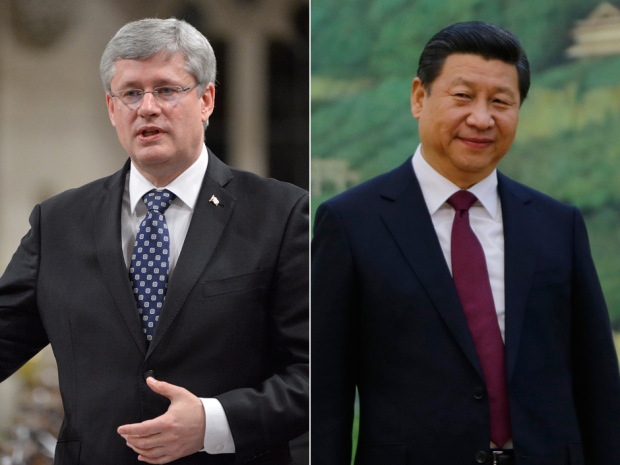The current state of Canadian-Sino trade relations downplays Canada’s strengths while distorting the trade balance in favour of China. For Canada’s continued economic security, it is imperative to strategically examine the future needs of China: health, security, finance and the environment, areas in which Canada is well accomplished. Canada should improve its strategy by boosting cultural ties and dialogue, to demonstrate an interest in Chinese affairs. Our current natural resources export based approach will not always prevail in the future.
Since the Chinese market reforms of the early 1980s, Canadian-Chinese economic relations took off. The bulk of Canada’s Chinese imports are typically manufactured goods while Canada exports mainly natural resources to China. Currently, China is Canada’s second largest trading partner, closely following behind the United States, while Canada does not even place in the top 10 of China’s trading partners. 2013 statistics reported a trade deficit of -$32,566,080,48 with Canadian exports to China reaching $20,170,655,976 and Chinese exports to Canada triumphing at $52,716,736,457.
China’s population of 1.3 billion, and its expanding middle class represents an immense opportunity for Canada to boost trade relations and repair the distorted trade balance. The Chinese have a positive view of Canada; however, we are not seen as particularly important strategic partners.
Canada is successful in exporting natural resources such as minerals and grains to China, as the Chinese middle class is becoming concerned about their food safety and the environment due to the increase in air toxicity. 8 million acres of Chinese land (the size of Belgium) was recently prohibited from being farmed due to high pollution levels. It is important for Canada to continue to market itself as an area for grain and food exports to meet the growing needs of China’s changing society.
Our competitive advantage cannot be based on this aspect alone. As an extension to this point, our natural resource exports are sure to be met with rivalry from Russia, a large geopolitical ally of China. With the recent sanctions imposed on Russia, the country renewed a commitment to developing domestic agriculture, with the goal of maximum self-sufficiency. In 2012, Russia declared the country to be 89 percent food sufficient with US$ 42 billion to be invested into agriculture over the next decade. Whether or not this plan will produce the expected outcome, it is necessary that Canada diversify its portfolio of exports to China as Canadian natural resources may not be always be the optimal solution for Chinese needs if Russia produces a better alternative.
As the worlds second largest economy, China has its pick among countries to trade with. Canada is seen positively in China; Canadians are serious about the standards of their necessities and services. It is not solely the responsibility of large Canadian based multinationals to engage with China but small-medium enterprises (SMEs) that focus on green technology, health care and financial services can help to create a China strategy. The Canadian government should emphasize the benefits this would provide to both domestic companies and the nation’s economy. In doing so, the government should provide support to SMEs with training and infrastructure to best prepare them on increasing economic relations with China.
Canadian Prime Minister Stephen Harper & Chinese President Xi Jinping
Many argue that Canada has successfully pivoted towards China. China was identified in 2010 under the Global Markets Action Plan as one of 80 priority countries. Key opportunities identified included: aerospace, agriculture and processed food, automotives, education, infrastructure and information and communications technologies. Too many priorities takes time away from engaging with countries who present the most sustainable and lasting outcome, specifically China. Canada is missing out on this opportunity to engage in increasing trade.
Lastly, Canada needs to improve its comprehensive strategy with China. While trade relations are of great importance, cultural and educational ties and sharing experiences are imperative. Canada has been quite open to receiving Chinese students at Canadian institutions, with more than 60,000 in the country. Peter Harder, President of the China-Canada Business Council argues for ‘‘greater Canadian Student experiences in China. The Canada-China Scholar’s exchange programme is important and has since 1973 involved more that 900 scholar participants. But we need to have more Canadian students learn mandarin, appreciate Chinese culture and develop the business relationship for the 21st century.”
Canada has the skills and services that the expanding Chinese middle class needs. The Global Markets Action Plan already targets a variety of sectors for export growth, but Canada needs to prioritize further growth in the Chinese market. Building relationships, increasing trade and educating the public on Chinese opportunities will demonstrate that Canada is ready to be a stronger partner in Chinese affairs.






